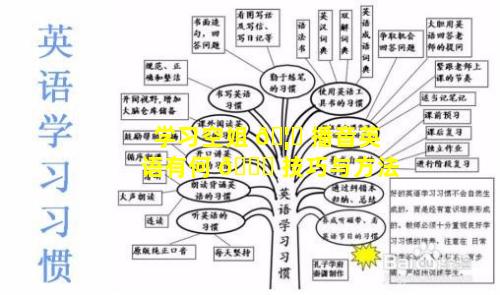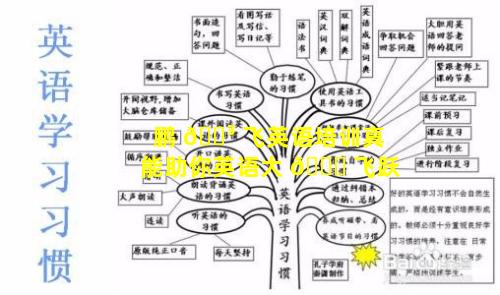高校英语强化培训能使学生大进步吗英语作文
- 作者: 胡船星
- 来源: 投稿
- 2024-10-01
1、高校英语强化培训能使学生大进步吗英语作文
Can High School Intensive English Training Significantly Enhance Students' Proficiency?
Intensive English training programs in high schools have emerged as a popular strategy to augment students' linguistic abilities. Proponents argue that these programs offer a multitude of benefits, claiming that they can lead to substantial improvements in English proficiency. However, a critical examination of the evidence suggests a more nuanced perspective on the effectiveness of intensive English training.
One of the primary advantages of intensive English training is the increased exposure to the language it provides. Students enrolled in these programs typically engage in several hours of English instruction per day, which creates a highly immersive environment. This prolonged exposure can enhance listening comprehension, fluency, and vocabulary acquisition. Studies have shown that intensive training can significantly improve students' scores on standardized English proficiency tests, such as the TOEFL and IELTS.
Furthermore, intensive English training often incorporates interactive learning activities and peertopeer interactions. This approach fosters a collaborative learning environment where students have ample opportunities to practice speaking and listening skills. By engaging in authentic conversations and participating in group projects, students develop confidence in their ability to communicate effectively in English.
However, it is important to recognize that the effectiveness of intensive English training can vary depending on several factors. One crucial factor is the quality of the instruction. Programs that employ experienced and qualified teachers who utilize effective teaching methodologies are more likely to yield positive results. Additionally, the motivation and engagement of students play a significant role in their progress. Students who are genuinely interested in learning English and who actively participate in the program are more likely to experience significant improvements.
Moreover, the duration and intensity of the training can impact its effectiveness. While shortterm programs may provide a temporary boost, sustained and consistent training over an extended period is essential for longlasting results. Additionally, programs that focus on developing all four language skills (reading, writing, speaking, and listening) are more effective than those that prioritize only one or two.
In conclusion, while intensive English training in high schools can be a valuable tool for enhancing students' proficiency, its effectiveness is not guaranteed. The quality of the instruction, student motivation, and the duration and intensity of the training are all critical factors to consider. Schools and educators should carefully evaluate these factors when implementing or participating in intensive English training programs to ensure that they are tailored to the specific needs of their students.
2、高校英语强化培训能使学生大进步吗为什么
高校英语强化培训是否能使学生大进步?
高校英语强化培训对于学生英语水平的提升有一定作用,但其效果取决于多种因素,并非所有人都能取得显著进步。
有利因素:集中式学习:强化培训通常集中进行,允许学生在短时间内投入大量精力学习英语。
专业指导:培训由经验丰富的英语教师指导,提供有针对性的辅导和指导。
沉浸式环境:强化培训经常营造沉浸式环境,让学生有更多机会接触和使用英语。
不利因素:时间有限:强化培训通常为期较短,学生可能无法充分巩固所学知识。
基础差异:学生英语基础不同,有些学生可能难以跟上课程进度或无法从中受益。
后续学习:强化培训结束后,如果没有持续的学习,学生可能会逐渐丧失所学知识。
是否能取得大进步取决于以下因素:
学生的学习动机和态度:积极主动、勤奋好学的学生更可能通过强化培训取得进步。
英语基础:具有良好基础的学生可以利用强化培训提高自己的水平,而基础较弱的学生可能面临挑战。
培训内容和方法:经过精心设计的培训内容和有效的教学方法将促进学生的学习。
后续学习策略:强化培训后,学生需要制定有效的学习策略来巩固所学知识并持续提高。
高校英语强化培训可以为学生提供提升英语水平的机会,但其效果取决于多种因素。学生需要积极主动、具备良好的基础并做好后续学习准备,才能最大限度地利用强化培训。

3、高校英语专业人才培养方案
高校英语专业人才培养方案
一、培养目标
培养具有扎实的英语语言基础、广博的英语语言文化知识、较强的跨文化交际能力、较高的英语教学水平、较强的英语应用能力的,德智体美劳全面发展的高素质英语专业人才。
二、招生对象
高中毕业生或具有同等学力者。
三、培养年限
4 年,修满 140 学分。
四、培养模式
以学生为中心,以创新人才培养为导向,以强化基础、完善能力、发展素质为目标,采取理论教学、实践教学、自主学习、导师指导相结合的培养模式。
五、课程体系
1. 通识教育课程
思想道德与法治
毛泽东思想和中国特色社会主义理论体系概论
大学英语数学建模
计算机应用基础
体育心理健康
职业生涯规划
2. 专业核心课程
英语语言学
英语文学英语翻译
英语教学法
英语文化英语视听说
英语写作英语语法
英语语音
3. 专业拓展课程
第二外语跨文化交际
英语应用文写作
英语商务英语
英语旅游英语
英语口译与笔译
4. 实践教学
实习听力训练
口语训练
翻译实践
教学实践
5. 毕业论文
每位学生需在指导老师的指导下完成一篇英语专业毕业论文。
六、培养要求
1. 英语语言基础
掌握英语语言的基本知识,包括语法、词汇、语音等。
具备熟练的阅读、写作、听说能力。
能够流利地用英语进行口头和书面交流。
2. 英语语言文化知识
了解英语语言的历史、演变和特点。
掌握英语文学、文化和历史的概况。
理解中西方文化的差异,具备良好的跨文化交际意识。
3. 英语教学水平
掌握英语教学理论和方法。
具备设计和实施英语教学活动的技能。
能够有效地激发学生的学习兴趣,提高学生的英语水平。
4. 英语应用能力
具备英语翻译、商务英语、旅游英语等方面的应用技能。
能够熟练地使用英语进行商务谈判、接待外宾、旅游交流等活动。
5. 综合素质
具有良好的道德品质,爱国敬业。
具备团结协作、求真务实、勇于创新的精神。
具备较强的独立思考、分析解决问题和自我管理能力。
七、教学方法
采用多种教学方法,如讲授、讨论、演示、实验、实训等。
充分利用现代教育技术手段,辅助教学。
鼓励学生自主学习,拓展知识面。
重视实践教学,提升学生的应用能力。
八、考核方式
平时考核:包括课堂表现、作业完成情况、小测验等。
期末考核:包括闭卷考试、论文、实践报告等。
毕业论文考核:答辩合格。
九、学位授予
符合培养要求的毕业生,经学位论文答辩通过,授予英语语言文学学士学位。
4、大学英语强化班是什么意思
大学英语强化班是指针对英语基础相对薄弱的学生开设的英语强化课程,旨在帮助学生快速提升英语水平,达到大学学习英语课程的要求。
强化班的特点通常包括:
小班授课:人数较少,通常在 1015 人左右,便于老师兼顾每个学生。
高强度学习:课程安排密集,学习时间长,作业量大。
侧重基础:从基础语法、词汇、发音等内容开始,夯实语言基础。
强化练习:通过大量练习,巩固语言知识,提高语言技能。
提供课外辅导:老师会额外提供课外辅导时间,解答学生疑问,查漏补缺。
强化班的目的是帮助学生在短时间内取得显著的进步,以便更好地适应大学的英语学习要求,提升学术能力。




